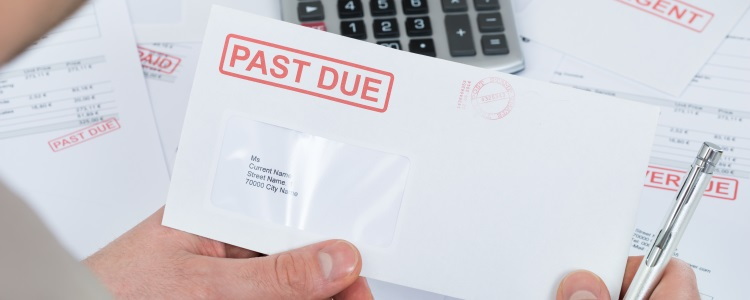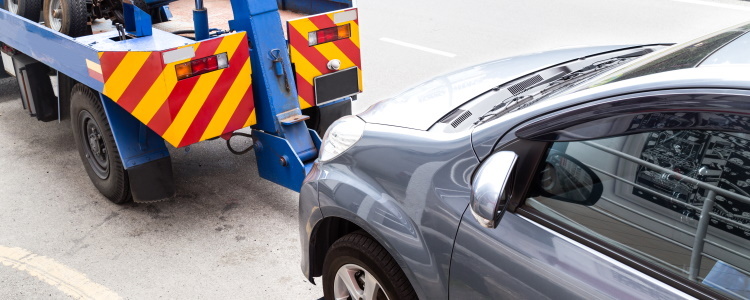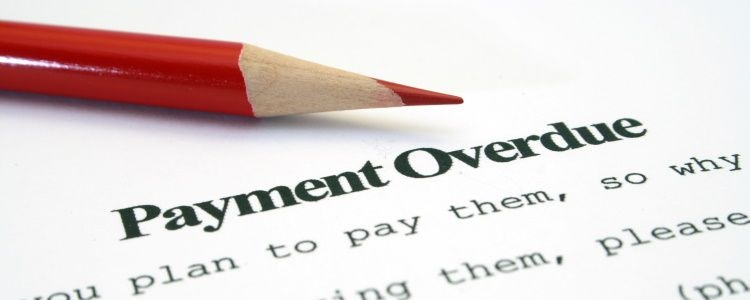It’s important you make your car payment on time and in full each month. If not, you could end up falling behind on your payments and, ultimately, lose your vehicle and fall deeper into debt. But, the good news is that you can prevent all of this from happening – you just need to stay a step ahead of the game.
When is a Car Payment Considered Late?
A car payment is considered late once you miss its due date. Immediately following the due date, your creditor can penalize you with a late fee. You typically have 30 days to make the payment plus the late fee before it affects your credit score. Legally, your creditor can’t report any late payments before the 30-day mark. If they do, they’re breaking federal law.
You shouldn’t make a habit of missing your due date or relying on this 30-day “grace period." Constantly paying late fees costs you more in the long run and you run the risk of defaulting on your loan if you miss the 30-day window.
How to Avoid Late Payments
So, just how do you prevent yourself from missing the payment date? Here are a few ways you can go about this:
- Payment reminders – Setting up payment reminders either on your cell phone or calendar at home gives you a visual reminder that you need to make your car payment.
- Utilize auto pay – If you’re forgetful at times, you may be able to enroll in automatic billing. If you choose this option, make sure you have enough in your account on the due date to cover the monthly payment.
- Choose your payment dates – If you can, one of the best ways to manage your monthly payments is to put all of your bills’ due dates on the same day. It’s easier to remember one day than different days to pay multiple bills each month.
How to Get Help before Missing Your Payment
If you realize you won’t be able to make next month’s payment, the best way to get help and prevent any damage to your credit is to talk to your lender as soon as possible. Reaching out beforehand helps them understand what’s going on with your financial situation. Most lenders would rather help you out than have the car repossessed, and they may be able to adjust your payment schedule.
The best case scenario is the lender allowing you to skip the current month’s payment and add it to the end of the loan term. Even if your lender tells you they can’t help you out, it's better if you tell them earlier than later.
How Does a Late Payment Affect Your Credit?
Late payments can affect your credit in multiple ways. Just how much of an affect this has depends on three things:
- How late the payment is – A payment that’s 30 days late won’t have the same effect as a payment that’s 90 days late. The longer you go without paying the bill, the bigger the impact it has on your credit score.
- Your current credit score – If you have good credit, one missed payment that reaches the 30-day mark can drop your FICO score as much as 90 to 110 points according to FICO data. If you have bad credit and you have multiple missed payments, the next late payment might only drop your score by 60 to 80 points.
- Your payment history – A missed payment can stay on your credit reports for up to seven years. So, the more missed payments you have on your reports, the lower your overall score will be.
Unless you file a dispute with the credit bureau, you won’t be able to remove a late payment from your credit report. You should dispute the late payment if you feel it’s incorrect, and you did in fact pay. Once you file, the credit bureau investigates your claim and the lender must respond within 30 days of filing. If they don’t respond, the negative mark is then removed by default.
How Long Until They Repo a Car for Being Late?
Depending on the state you live in, a lender can begin the repossession process as soon as a day after a missed a payment. From there, the lender can take the vehicle at any point, sometimes without notice. What they can’t do is forcibly take the car from you if it’s secured in a garage or you’re sitting inside. State laws differ and each lender has their own procedures, so it’s important you review your loan contract, ask your lender questions about what might happen, and look up your state’s laws on repossession.
Ready to Finance a Car?
The bottom line is that you should be on top of your monthly bills at all times. You don’t want to get yourself in financial trouble and be without a car because you missed a payment. If you think you’ll lose the vehicle, reach out to your lender and discuss any options you might have. Don’t be afraid to let the lender know – it’s better than leaving them out of the situation.
If you’re ready to take on a car loan and set yourself up to for success with on-time monthly payments, let Auto Credit Express help. We work with a nationwide network of dealers that have the lending resources available to help people in various credit situations. Don’t hesitate, start today by filling out our online auto loan request form.
















